The Latinxs and the Environment Initiative (LEI) and the Institute for Research on Labor and Employment (IRLE) at UC Berkeley have partnered to provide both undergraduate and graduate students with stipends meant to conduct research on issues related to labor and the environment.
Selected students will work with faculty, researchers, community-based organizations, policymakers, and other stakeholders in advancing quality research with potential policy impact. Research can take the form of social media projects, research papers, preparation of posters, conference presentations, etc.
Get to Know the 2021-2022 Research Stipend Recipients Below!
Maria Alvarez Pineda
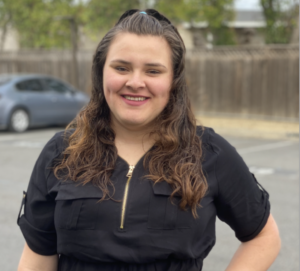
Pronouns: She/Her/Ella
Major: Public Health
Description of Research Project:
“Young workers have high rates of work related injuries and hazard exposure. The goal of my project is to create a video explaining young workers’ rights, hazards they are exposed to, laws that protect them, and any other relevant information that would be helpful for them to know. The intended population includes high school and college students. I will also make supplemental Tik Tok videos in both English and Spanish discussing hazards in different work industries and protective laws & regulations.”
Adrian Frias
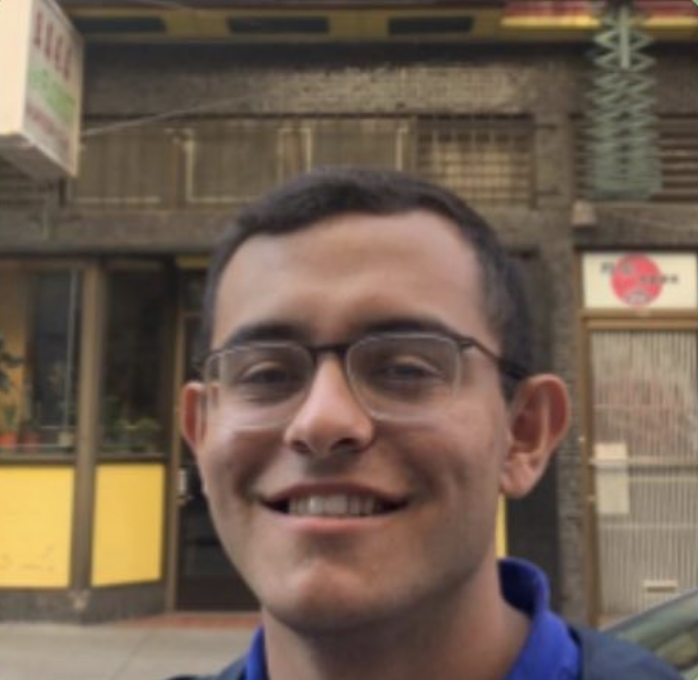
Pronouns: he/him
Major: Geography & Ethnic Studies
Description of Research Project:
“This research project hopes to: (1) examine how the Marathon Refinery is an example of environmental racism as a result of BIPOC communities proximity to the refinery; (2) futher examine how the placement of the oil industry in Carson, also results in the city being a site of racial capitalism; (3) and elucidate how the Marathon Refinery manufactures and maintains an indifferent perception to nearby residents, despite being a hazard to the community.”
Jazmin Aguilar Rangel

Pronouns: She/Her/Ella
Major: Global Studies, minor in Public Policy
Description of Research Project:
“I am interested in how increased violence over avocado production has negatively impacted the socio-environmental aspects in the state of Michoacán mainly focusing on how this has affected the conditions of the avocado farmworkers. My main goal is to bring awareness to USA consumers of the avocado through social media platforms while at the same time proposing ideas on how to create a sustainable avocado production that reduces the worsening labor conditions of the avocado farmworkers.”
Melyssa Oviedo

Pronouns: She/Her
Major: Political Science & Social Welfare
Description of Research Project:
“My research identifies the Port of Long Beach as an institution that extracts economic value from Latinx, Black and Khmer communities in the area. My research aims to evaluate the exploitation of blue collar workers of color by tracing the experiences of these workers and how their intersectional identities (e.g, race, ethnicity, and socioeconomic background) impacted their value within this capitalist institution.”
Elleora Svoboda
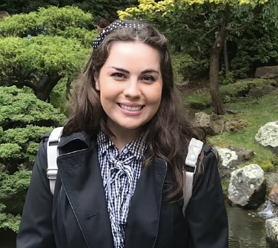
Pronouns: She/Her/Ella
Major: Molecular Environmental Biology; Environmental Economics & Policy
Description of Research Project:
“My research project will focus on the two key tenets of environmental health and environmental justice. I am interested in analyzing how low income populations and communities of color are particularly vulnerable to environmental hazards. My primary research question is how race and class impact health and environmental equity. This research will be done through the lens of the agricultural industry’s pesticide use and its impacts on the farmworkers and local communities.”
Janet Jara

Pronouns: She/Her/Ella
Major: Molecular Environmental Biology; Environmental Economics & Policy
Description of Research Project:
“My research project will focus on the two key tenets of environmental health and environmental justice. I am interested in analyzing how low income populations and communities of color are particularly vulnerable to environmental hazards. My primary research question is how race and class impact health and environmental equity. This research will be done through the lens of the agricultural industry’s pesticide use and its impacts on the farmworkers and local communities.”
Karen Serrano

Pronouns: She/Her/Hers
Major: Plant Biology
Karen Serrano is a 2nd year PhD student studying Plant Biology at UC Berkeley. Her research explores the underlying genetics of the mutualistic relationship between various agro-industry relevant plant species and arbuscular mycorrhizae fungi. She earned a B.S. in Biology with minors in Plant Science and Biochemistry from the University of Arizona Honors College in 2019. Karen hosts “The Graduates” program at the 90.7FM KALX radio station and also enjoys building community among Latinxs at Berkeley through her involvement with the Graduate Association for Latinx Students and the From Day One program. Her doctoral research is supported by the Berkeley Fellowship for Graduate Study and the Latinx & The Environment Initiative.
Description of Research Project:
“In recent years, we have witnessed an incredibly large increase in the demand for organic agricultural products throughout the United States and beyond. As Americans become increasingly conscientious about the quality of their food, this creates major pushback against the consumption of genetically-modified crops and even stronger pushback against the use of pesticides in agriculture. Consumers across the nation are now holding the “USDA Organic” seal as the health standard, with little research into either the science or the effects of the industry practices involved. Due to the shift in consumer preference, organic farming is on the rise. Practices in organic farming are generally accepted to be better for the environment as they reduce pollution, conserve water, and increase soil fertility. However, these practices are extremely labour intensive, some requiring up to 35% more manual labor than conventional practices (Fess et al. 2017). Given a large proportion of U.S. farm labourers are migrant workers, I am interested in how a shift from conventional to organic farming practices have affected this group within the Latinx community in terms of work conditions and health risks.
Specifically, I propose a comprehensive study on the effects of increasing use of organic farming practices across California fruit farms on the migrant worker community. According to the California Department of Food and Agriculture, California is responsible for growing 2/3rds of the nation’s fruits and nuts. Additionally, California is home to close to ⅓ of all farmworkers in America, 75% of which are undocumented migrant workers. I am interested in analyzing the environmental impact of common organic farming practices such as physical weeding, use of cover crops, and mechanical pest control, and then contrasting these with the associated costs of organic farming in terms of worker job satisfaction, mental and physical health, and economic security. I would also examine the labourers’ access to organic products in their own communities. In essence, I’d like to explore the true sustainability, both environmental and social, of organic farming practices across fruit farms in California.”
Aisha Wallace-Palomares
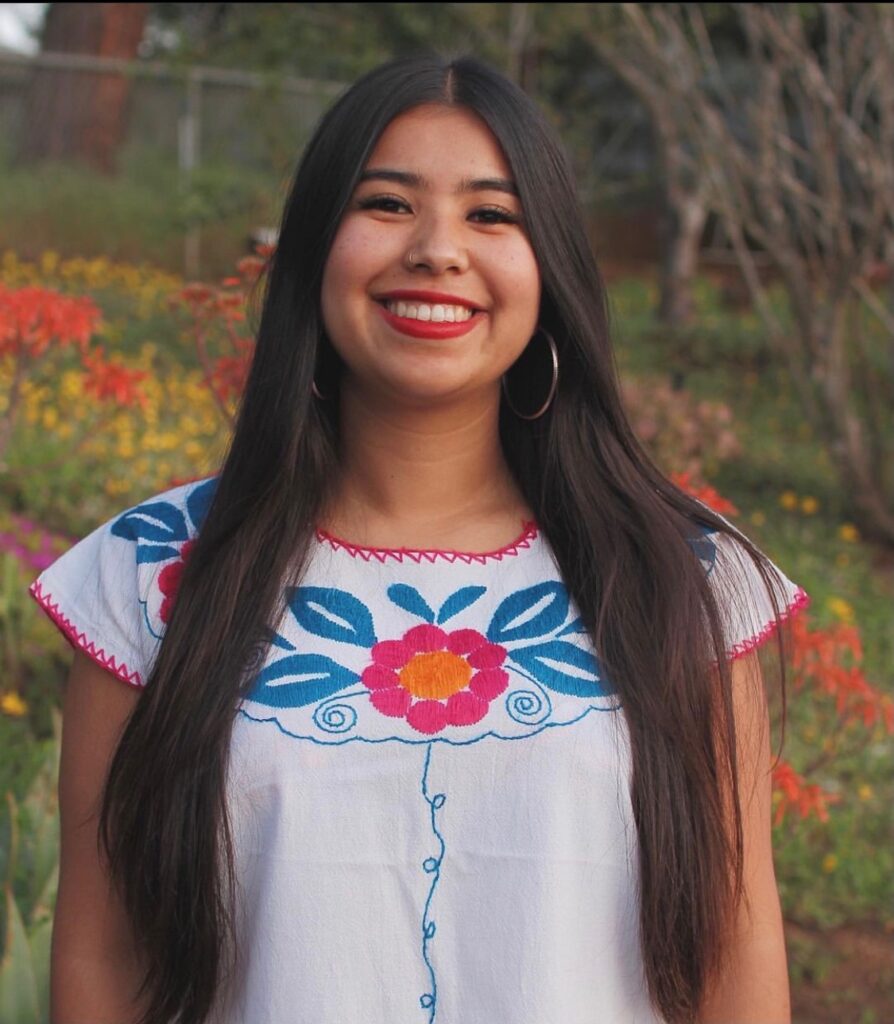
Pronouns: She/Her/Hers
Major: Political Science
Aisha is second year undergraduate studying Political Science at Cal; she is from Escondido, CA. She is passionate about fighting for climate justice and has advocated for climate action since she was 15. She has been involved with San Diego 350, Sierra Club, Oceana, and Zero Waste San Diego. She is currently a member of the Escondido Climate Action Plan Community Advisory Committee.
Description of Research Project:
“Most Americans prior to the pandemic, did not think about the workers that made their everyday life possible. The pandemic has resulted in a new found awareness around essential workers. A lot of essential workers are Latinx’s, this means that they are disproportionately affected by covid-19. We also know that communities of color and low-income communities are subject to environmental injustices and are being disproportionately affected by climate change. It is imperative to understand the effects of these simultaneous crises on the latinx community, specifically essential workers, so that policy is better able to address and support this community. My hope is to make connections between environmental justice issues, environmental health disparities, marginalized status, racial discrimination, language barriers, exploitation, and assess their contribution to the Latino experience of the pandemic. I have selected the media format of the podcast because it can be listened to online and if picked up by media outlets, played on the radio. This media format more than any other, meets people where they are. Not everyone has access to the TV to watch news, but a lot of people have access to the internet and the radio. Thus, this would ensure that a broad audience is reached with this information. The series will contain a mix of Spanish and English, and maybe some “Spanglish.” I am a firm believer that one of the most powerful ways to enact change is through the power of storytelling. I want to amplify the voice of individuals in the Latino community, and help bring some change.”
Melissa Cervantes

Pronouns: She/Her/Hers/Ella
Major: Society & Environment
Melissa is a second year undergraduate at Cal studying Society & Environment and Conservation & Resource Studies. Melissa comes from a family of mainly agricultural workers and has witnessed how her hometown, Napa, California, overlooks the hard work of the Latinx/ immigrant community. She hopes her research project will create a positive discussion regarding Latinx labor in the Napa Valley, and hopes to use her Bachelor’s degree to give back to her community.
Description of Research Project:
“My research project will focus on the role of Latinx folks in the Napa Valley wine industry. I will draw special attention to the yearly wildfires that happen in Napa and other neighboring counties, and how that affects the health of the vineyard workers. Interviewing will be incorporated to my research process, as I plan to interview Latinx community members who are tied to the wine industry and city council. I hope that I can create an accessible video and/or infographic (both English and Spanish) for my final product.”
Keith Brower Brown
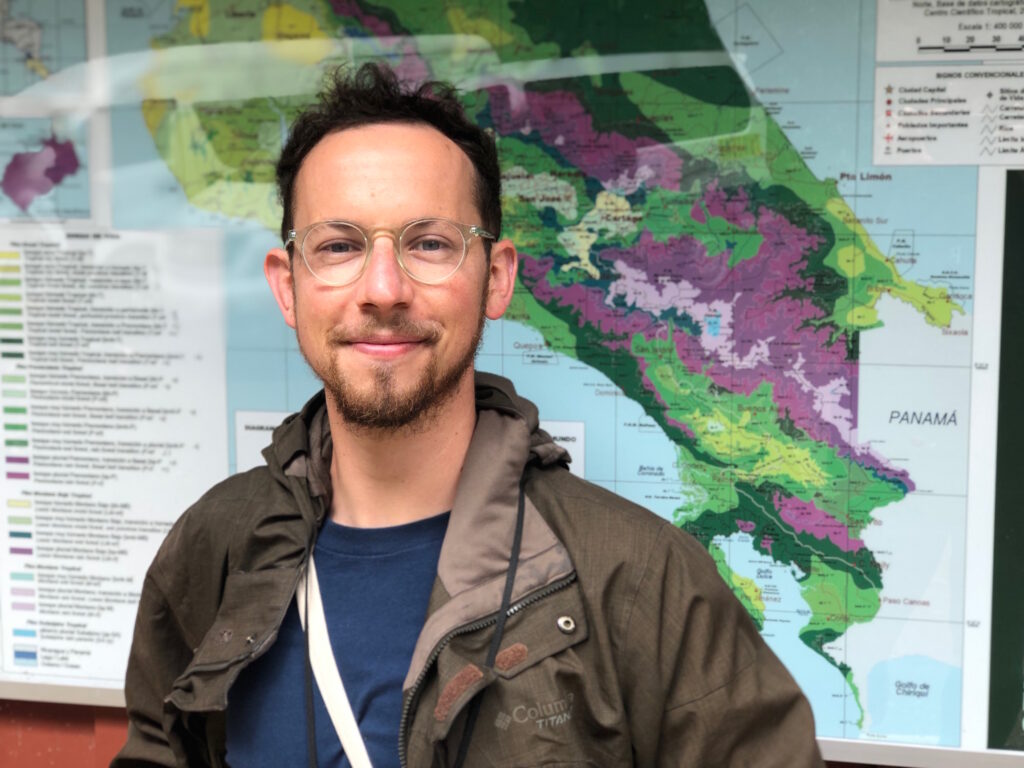
Pronouns: He/Him/They
Major: Geography
Keith is a fourth year Ph.D. student in Geography, with undergraduate degrees in Environmental Economics and Geography from UC Berkeley. His family history as German-Jewish refugees motivates his work for migrant, labor, and climate justice. Before his graduate studies, Keith worked at Navigant as a clean energy policy consultant for public agencies and utilities, conducted ethnographic research with rural movements against wind power in northeastern Brazil, and toured as a working musician in pop and ambient groups (including Bio-Ofrenda, with Harvard/UC Berkeley Latinx Studies scholar Marcelo Montalvo Garzo). Along with the Latinx & The Environment Initiative, his doctoral research is supported by the National Science Foundation, the journal Human Geography, a Designated Emphasis in Gender, Women & Sexuality, and the Berkeley Fellowship for Graduate Study.
Description of Research Project:
“Keith’s dissertation researches the foundations for an emerging, groundbreaking alliance between predominantly Latinx construction unions and environmental justice organizations in California’s San Joaquin Valley.”
Xitlaly Garcia

Pronouns: She/Her/They
Major: CRS/Ethnic Studies
Xitlaly was born and raised in Salinas, California, the salad bowl of the world. Growing up, she witnessed the effect of the back-breaking labor her family executed every day working the fields of the Salinas Valley. Xitlaly is currently a first-generation college student at the University of California Berkeley double majoring in conservation and resource studies and ethnic studies. She hopes to one day return to the Salinas Valley to help minimize the impact of environmental pollution on the Latinx population for a better quality of life.
Description of Research Project:
“My inspiration for focusing on health care access for migrant workers in the Salinas Valley are my family members themselves. For far too long I have seen them struggle executing back-breaking labor and not receiving the adequate health care services they deserve. There are far too many people who are not granted health care access as a result of their legal status, my family included. My research will be focused on the Salinas Valley and how immigrant workers are being affected every day as a result of inaccessible health care. I will be researching different organizations and projects in my community that dedicate their time to providing health care to residents in Salinas and the Monterey County area. Organizations such as Building Healthy Communities (BHC) and projects like the Pilot Project, that provide services to residents who are not eligible for health care programs and do not have health insurance. In addition, I will be collecting oral histories from different family members who work in the fields of the Salinas Valley and have been directly affected by inaccessible health care.
I will interview family members and complement the interviews with existing literature and finally, I will tie back my findings with today’s COVID-19 crisis affecting the Latinx community. The questions I will be asking revolve around their migration stories and their experience working in the United States. My main focus, however, is to ask about how working in the fields has affected their health as well as their ability to provide for their families and how accessible health care is for them. I will most importantly ask how their everyday life has been impacted as a result of having access/not having access to health services and how that impacts their ability to work. I additionally want to know what challenges they face when acquiring health services. I need to know not only how my community is supporting residents who lack health care but also how families’ health is directly being affected as a result of this inequity. It is especially important to have these conversations in unprecedented times like these because marginalized populations are the ones who are at the frontlines providing food for the nation and the ones primarily being affected by COVID19. Researching this topic will also give me insight into bigger scale issues affecting marginalized communities all over the country.”
Alexandra Orellana

Pronouns: She/Her/Hers
Major: Molecular and Cell Biology: Cell & Developmental Biology
Alexandra is a current undergraduate pre-medical student at the University of California, Berkeley pursuing a degree in Molecular and Cell Biology. She has a passion for community and educational equity. She is a general chemistry study group leader for the Biology Scholars Program and a mentor for EOP STEM.
Description of Research Project:
“Farmworkers are at a high risk for adverse health consequences related to COVID-19 as well as the pre-existing cardiovascular and metabolic risk factors from their environment. These essential workers do not have the adequate support and preventative measures necessary to be safe during this pandemic. The inability to safely quarantine if someone becomes ill, either from work or from coming in contact with someone who is positive for COVID-19, and poor access to COVID-19 educational and preventional materials due to literacy barriers affects their ability to understand how to protect themselves with limited resources. The vulnerability of farmworkers due to COVID-19 is threatening to exacerbate the existing social and economic disparities faced by this population as well as the food supply chains throughout Mexico that bring income to the country.
The research project that I am involved with is led by Drs. Ana Maria Mora (UC Berkeley) and Cynthia Armendariz-Arnez (UNAM) and aims to examine risk factors, exposures, and knowledge of COVID-19 infection and prevention among farmworkers from avocado plantations in Michoacán. The study also aims to assess changes in financial status, food security, and mental health in this population since the COVID-19 pandemic started.”
